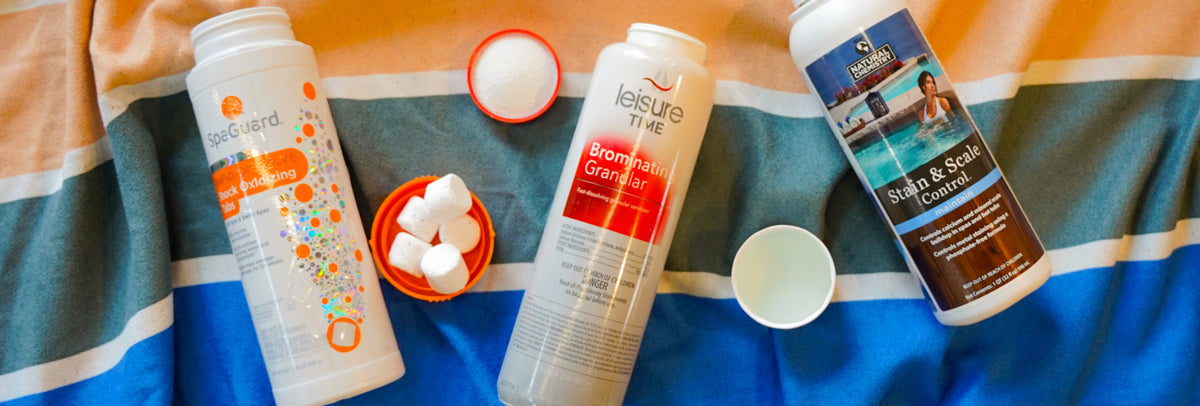
Choosing the Right Hot Tub Chemicals: Tablets vs Granular vs Liquid
|
|
Time to read 2 min
Orders placed after midnight on Thursday will be processed the following Monday.
Your cart is currently empty.
Written by: Brett Bengtson
|
Published on
|
Time to read 2 min
When it comes to maintaining crystal-clear, sanitized water in your hot tub, choosing the right chemical format is essential. The three main types—chemical tablets, granular chemicals, and liquid chemicals—all have their own pros and cons. But which is best for your specific needs? Let's break down the differences and determine what works best for your spa experience.
Watch Johnny service one of our valet clients with different styles of chemicals
The best chemical form for your hot tub depends on your priorities:
There is no single “best” type universally, but studies show that tablets provide the most consistent sanitization over time, while granular and liquid options allow for better customization. However, excessive stabilizer buildup from some tablets can lead to inefficiencies, meaning a combination approach (e.g., tablets for maintenance and granular or liquid for adjustments) is often the best strategy.
Balancing convenience, cost, and water quality is key.
Choosing which type of chemical to use in your tub is important; it varies on the needs of your tub.
There is no type that is "best". Using a variety of types of chemicals, or a combination strategy, might prove more successful.
 📦 Free shipping on most orders over $99 🚚
📦 Free shipping on most orders over $99 🚚
 📦 Free shipping on most orders over $99 🚚
📦 Free shipping on most orders over $99 🚚
 📦 Free shipping on most orders over $99 🚚
📦 Free shipping on most orders over $99 🚚
 📦 Free shipping on most orders over $99 🚚
📦 Free shipping on most orders over $99 🚚
 📦 Free shipping on most orders over $99 🚚
📦 Free shipping on most orders over $99 🚚
 📦 Free shipping on most orders over $99 🚚
📦 Free shipping on most orders over $99 🚚
 📦 Free shipping on most orders over $99 🚚
📦 Free shipping on most orders over $99 🚚
 📦 Free shipping on most orders over $99 🚚
📦 Free shipping on most orders over $99 🚚
 📦 Free shipping on most orders over $99 🚚
📦 Free shipping on most orders over $99 🚚
 📦 Free shipping on most orders over $99 🚚
📦 Free shipping on most orders over $99 🚚
 📦 Free shipping on most orders over $99 🚚
📦 Free shipping on most orders over $99 🚚
 📦 Free shipping on most orders over $99 🚚
📦 Free shipping on most orders over $99 🚚
 📦 Free shipping on most orders over $99 🚚
📦 Free shipping on most orders over $99 🚚
 📦 Free shipping on most orders over $99 🚚
📦 Free shipping on most orders over $99 🚚
 📦 Free shipping on most orders over $99 🚚
📦 Free shipping on most orders over $99 🚚
Most online orders ship from our Idaho Falls store location. Please contact us through our Idaho Falls location to receive order updates and to process returns/exchanges.
Send us an email at hello@leisuretimeinc.com or call us at (208) 973-1384.
